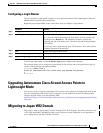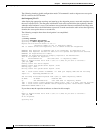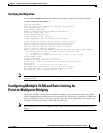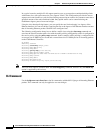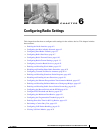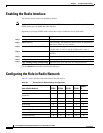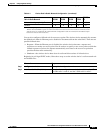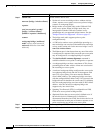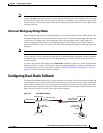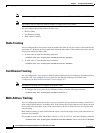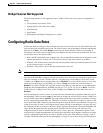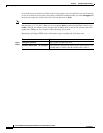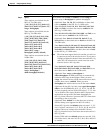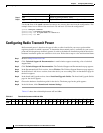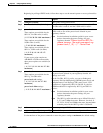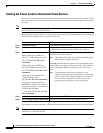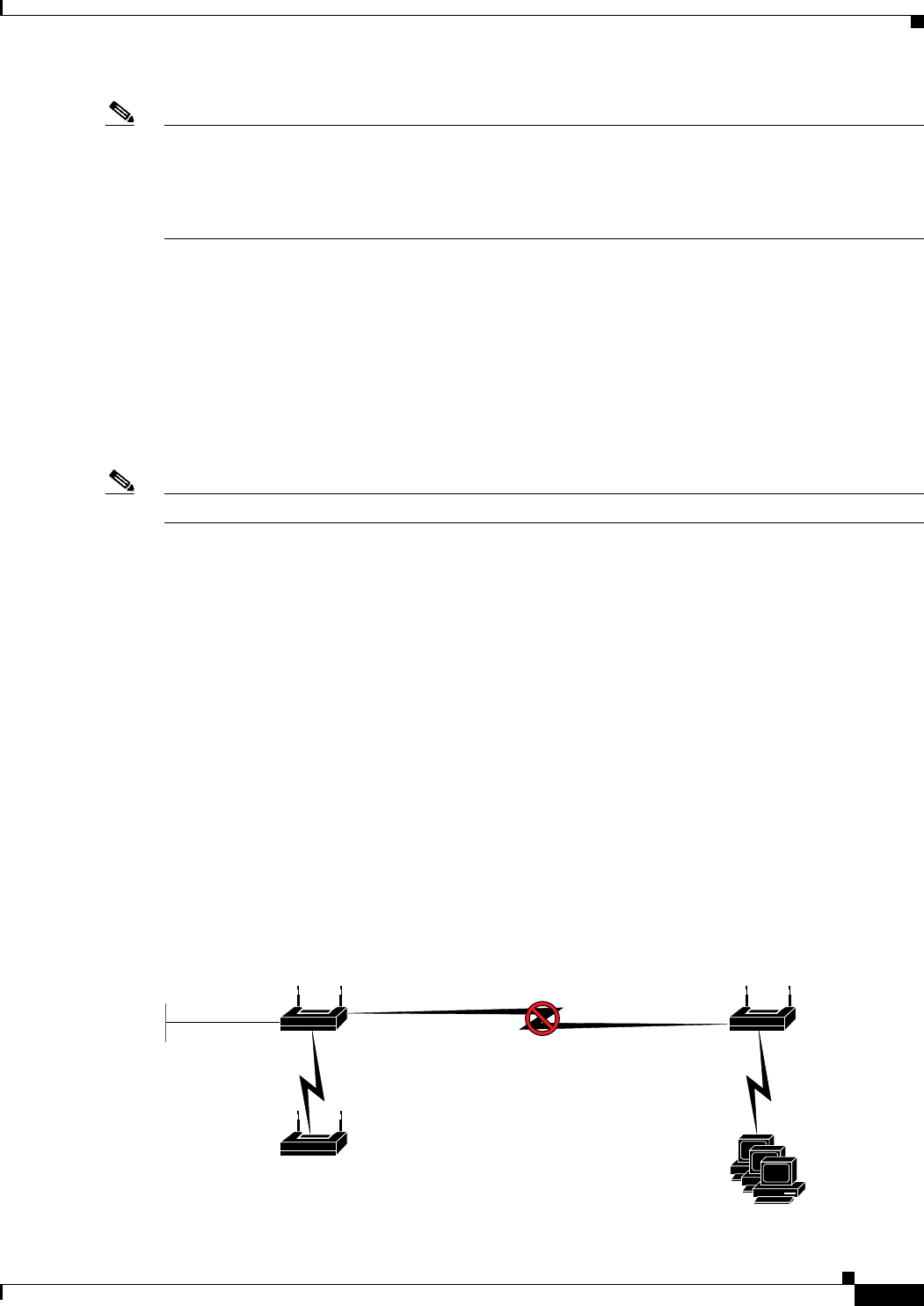
6-5
Cisco IOS Software Configuration Guide for Cisco Aironet Access Points
OL-11350-01
Chapter 6 Configuring Radio Settings
Configuring Dual-Radio Fallback
Note When you enable the role in the radio network as a Bridge/workgroup bridge and enable the interface
using the no shut command, the physical status and the software status of the interface will be up only
if the the device on the other end access point or bridge is up. Otherwise, only the physical status of the
device will be up. The software status of the device comes up only when the device on the other end is
configured and up.
Universal Workgroup Bridge Mode
When configuring the universal workgroup bridge roll, you must include the client’s MAC address. The
workgroup bridge will associate with this MAC address only if it is present in the bridge table and is not
a static entry. If validation fails, the workgroup bridge associates with its BVI’s MAC address. In
universal workgroup bridge mode, the workgroup bridge uses the Ethernet client’s MAC address to
associate with Cisco or non-Cisco root devices. The universal workgroup bridge is transparent and is not
managed.
Note The universal workgroup bridge role supports only one wired client.
You can enable a recovery mechanism and make the workgroup bridge manageable again by disabling
the Ethernet client, causing the universal workgroup bridge to associate with an access point using its
own BVI address.
A roaming keyword has been added to the world-mode command to support an “airline flying between
different countries” scenario. The keyword causes the workgroup bridge to do passive scanning once it
is deathenticated from a root access point. See the “Enabling and Disabling World Mode” section on
page 6-22 for more information on this command.
Configuring Dual-Radio Fallback
The dual-radio fallback features allows you to configure access points so that if the non-root bridge link
connecting the access point to the network infrastructure goes down, the root access point link through
which a client connects to the access point shut down. Shutting down the root access point link causes
the client to roam to another access point. Without this feature, the client remains connected to the access
point, but won’t be able to send or receive data from the network.
Figure 6-1 Dual-Radio Fallback
Access point
Fast Ethernet
11 a Root
bridge mode
11 b/g root
access point
mode
11 a Root bridge
mode
11 a non-root
bridge mode
146930
Access point
Clients
Access point



